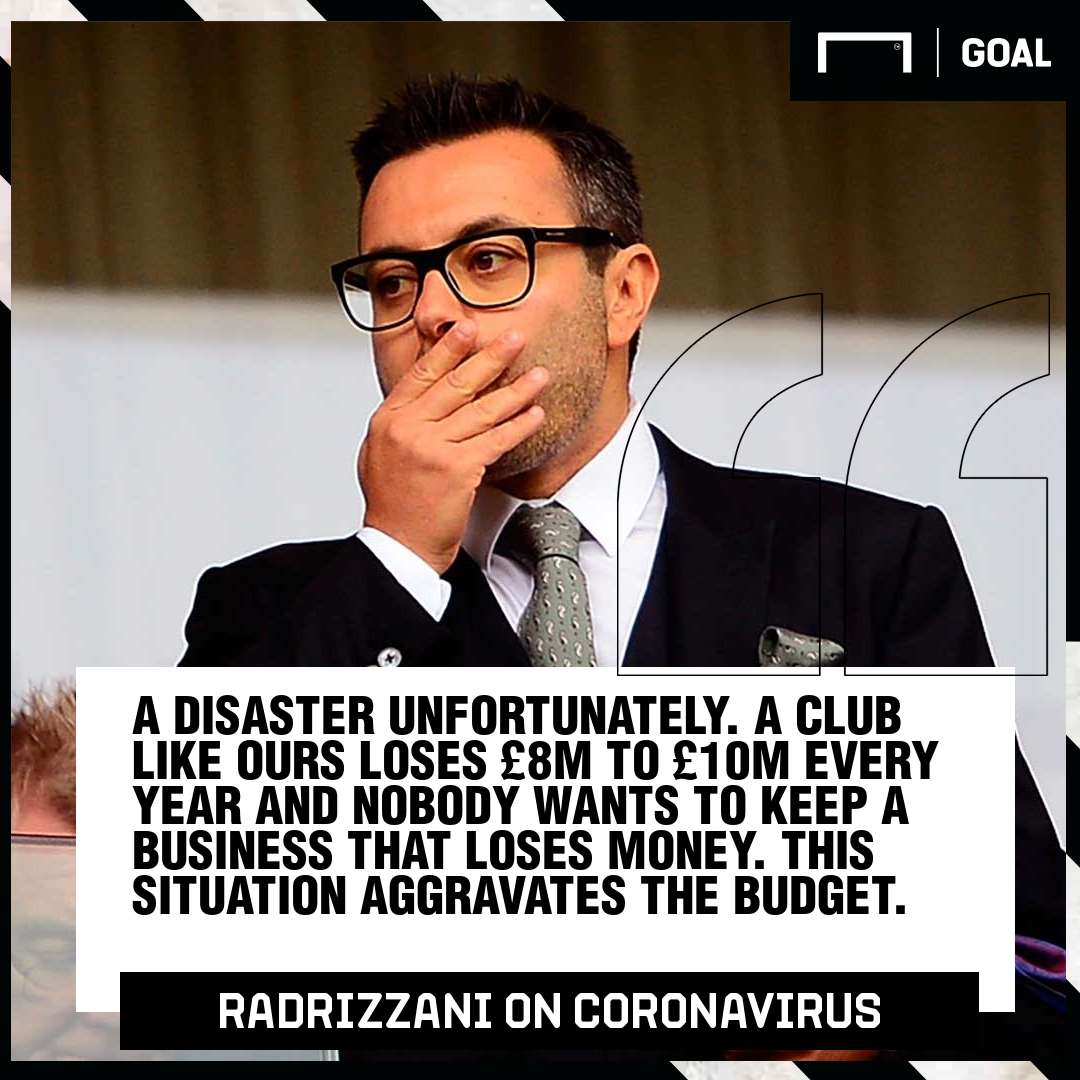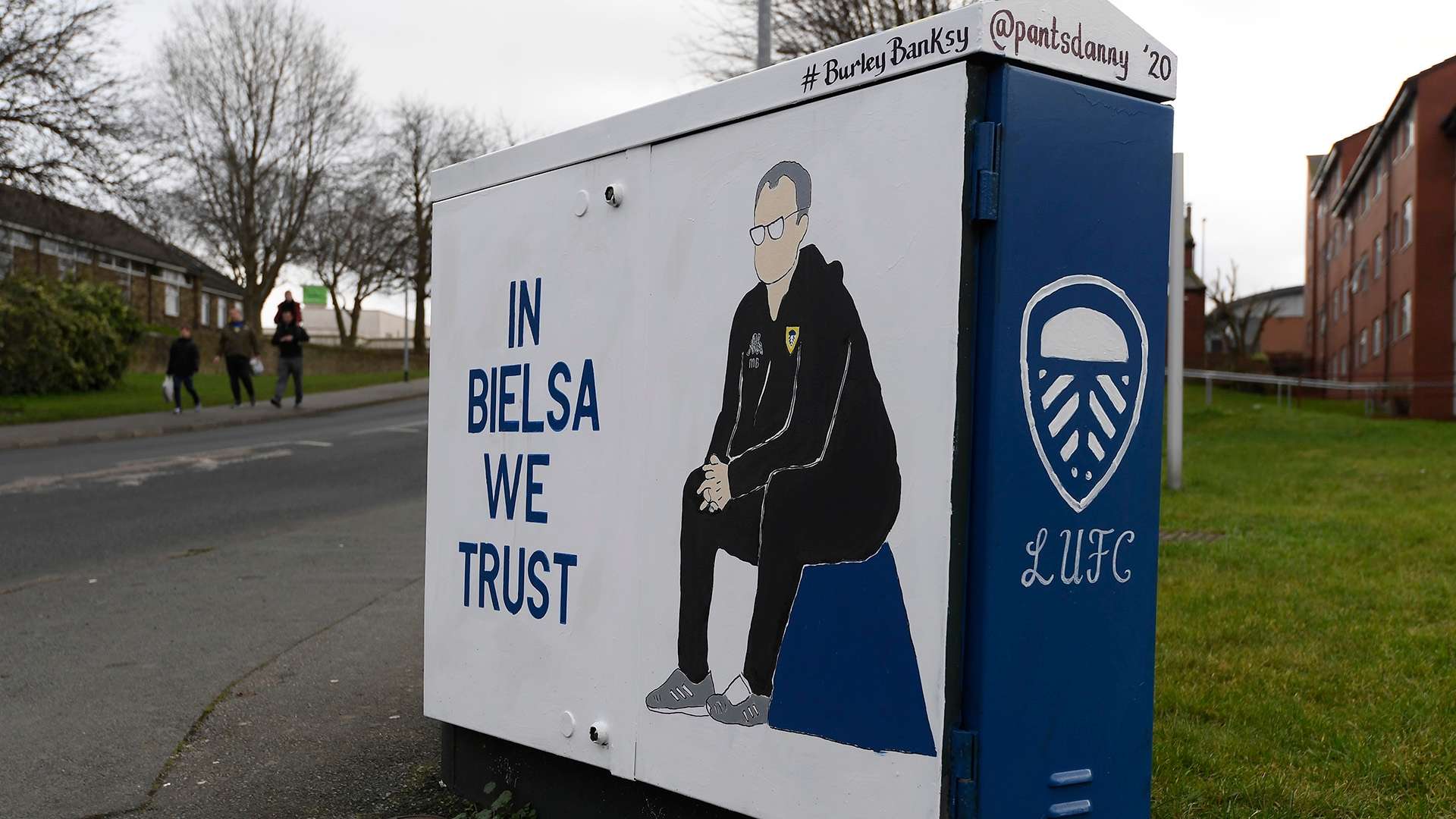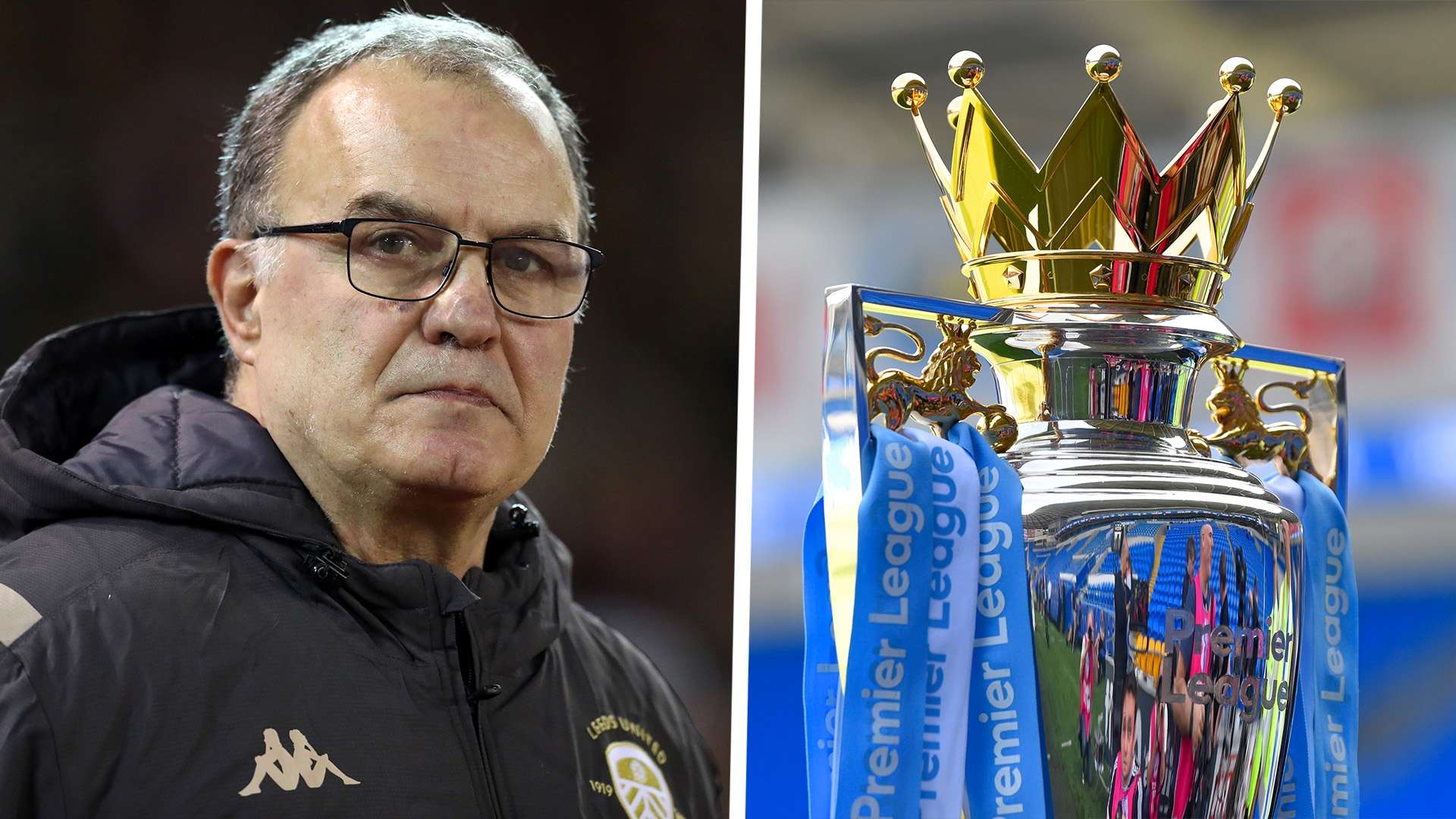Easter Monday should have seen a full round of Football League fixtures across England, as is tradition, with clubs fighting for promotion or against relegation. Instead, the stadiums of the 72 EFL clubs will be empty as the coronavirus-enforced lockdown continues across the UK.
There is no end in sight in terms of clubs being allowed to complete their seasons during the summer months. For teams at either end of their respective divisions, the wait is an agonising one. All things being equal, the season would be over by the first weekend in May. Instead many will reach that mark still with nine or 10 games left to fulfil.
Given the riches available to those who reach the Premier League, the lockdown is particularly jarring for those at the top of the Championship table.
Leeds United currently lead the way, with Marcelo Bielsa’s side tantalisingly close to ending their 16-year absence from the top-flight. They sit seven points clear of third-placed Fulham after a run of five wins without conceding a goal resurrected a campaign that threatened to derail itself following a poor run of form either side of the new year.
Returning to the promised land of the Premier League would obviously spark wild celebrations from those who grace Elland Road as supporters each week, but the delight within the club’s boardroom at finally being rid of the money pit that is the Championship would likely run it close.
Next Match
“A disaster unfortunately,” was how Leeds owner, Andrea Radrizzani, described the indefinite postponement of the season when speaking to Italian journalist Gianluca Di Marzio in a recent interview. “To be competitive, a club like ours loses £8 million ($10m) to £10m ($12.5m) every year and nobody wants to keep a business that loses money every year.
"This situation aggravates the budget. Not having five home games, we will lose about £2.5m, which are the only source of revenues since such figures do not come from TV rights. This epidemic aggravates this situation, which is already normally complicated."
 Getty/Goal
Getty/Goal
Radrizzani has regularly hit out at the lack of financial incentives available to those within the Championship, particularly given the interest there is in the league when compared to other second divisions around the world.
Leeds’ status as a former European Cup finalist and force for decades within the English game sees them draw plenty of attention from both fans and advertisers alike and yet, as Radrizzani has detailed, they continue to lose money year on year. Their most recent financial results for the 2018-19 season confirmed an annual pre-tax loss of £21.4m ($26.6m) despite the club enjoying its most successful season on the pitch since relegation from the Premier League in 2004.
Italian businessman Radrizzani has suggested that should Leeds remain in the Football League then he would be forced to sell, with the most recent television rights deal proving a particular sticking point as EFL clubs continue to earn a fraction of the amount that their Premier League counterparts do, despite games involving clubs such as Leeds and Nottingham Forest providing more viewers than some top-flight fixtures.
The disparity between rights deals is illustrated perfectly when delving into the finances of clubs who have been recently relegated from the Premier League.
During the 2017-18 season, the likes of Sunderland and Middlesbrough – who dropped down from the top-flight at the end of the previous campaign - earned over £46m ($57m) in television rights thanks to the parachute payments they receive from the Premier League. Clubs that were relegated in 2015, such as Cardiff City and QPR, still earned in excess of £20m ($25m).
Leeds, on the other hand, brought in just £7.7m ($9.6m) despite 19 of their 46 league matches having been chosen for live broadcast by Sky Sports in the UK. The new agreement that the EFL reached with Sky in 2019 will continue this trend.
 Getty
Getty
“I think the model of the Championship should be reconsidered because the turnover of owners keeps changing all the time every one, two, three years,” Radrizzani, who made his millions through buying and selling television rights for live sport himself, said in 2018. “It is not really a healthy system for the fans, for the clubs – this is because it is really not sustainable to stay in the Championship.
“There is a huge gap with the clubs coming down relegated from the Premier League, they have parachute [payments], they have a bigger TV budget. This model and also the small money they [the EFL] generate from TV rights, split between 72 clubs, maybe they need to reconsider and consider another way to create a ‘Premier League 2’ or something else, that can be sustainable, even for those who are not promoted.”
Leeds, of course, are not the only club feeling the pinch when it comes to the lack of money available in the Championship. Sheffield Wednesday and Derby County have both spent big in recent years in a bid to earn promotion, and having failed, are now attempting to get creative in ensuring they stay afloat.
Both have been charged by the EFL for a breach of spending rules, however, with it claimed that both sold their stadiums to their own chairmen for inflated fees before leasing them back in a bid to circumvent Profitability and Sustainability – the EFL’s version of Financial Fair Play. Points deductions as well as financial penalties have been mooted as punishments should they be found guilty, with Reading reportedly also under investigation following similar breaches.
Leeds can thank Radrizzani for not being in the same position right now, but failing to earn promotion this season – whether through a late collapse or the prospect of the campaign being voided due to Covid-19 – would have huge implications.
 Getty
Getty
With a wage bill around £50m-per-year, Leeds have one of the best paid squads in the Championship. And that that does not include the money paid to Bielsa, who is, by a distance, the best-paid coach in the division.
According to their 2018-19 financial figures, Leeds pay 94p in out in wages for every £1 earned by the club. While that is dangerously close to 100 per cent, it looks like a relatively sensible ratio when set against some other clubs in the division. Reading, by way of comparison, paid out £2.26 in wages for every £1 brought in.
But it is only sustainable for so long.
It is highly unlikely that Bielsa would remain in West Yorkshire if Leeds found themselves in the Championship again in 2020-21, and his departure, along with the probable sales of key players such as Kalvin Phillips and Mateusz Klich to Premier League sides, would at least help in balancing the books.
It would, however, also leave the Whites at a major sporting disadvantage in their quest to earn promotion, and with Radrizzani’s commitment to the cause likely to fade, the likelihood of them returning to mid-table mediocrity would increase dramatically.
As such, this season truly is all or nothing for Leeds United, and a worldwide pandemic that brought about the shutdown of football around the globe could not have come at a worse time.
Unlike some clubs below them in the pyramid, Leeds will be able to survive this temporary hit to their finances, but a failure to finish the job of earning promotion could have catastrophic effects on a club for who everything looked so rosy a matter of weeks ago.


